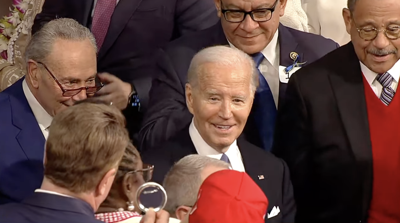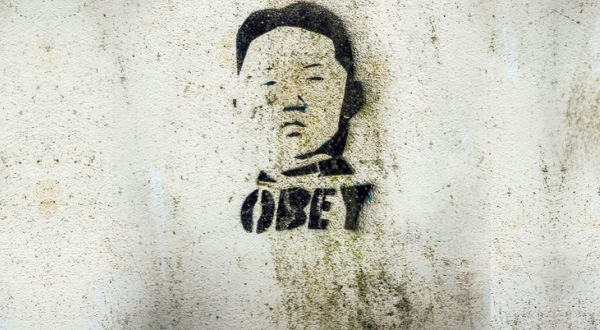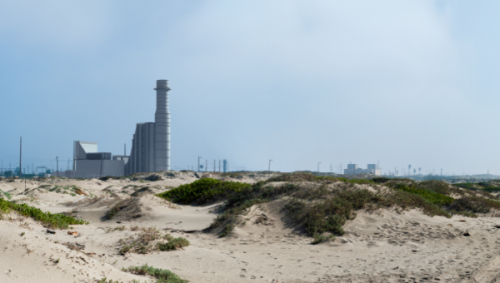By Bethany Blankley


(The Center Square) – Multiple reports refute claims made by the Biden administration to justify restricting U.S. liquified natural gas (LNG) exports – the majority of which are exported from Texas and Louisiana ports.
The administration announced it was implementing a temporary pause on pending decisions on exports of LNG to non-Free Trade Agreement countries until the Department of Energy updates “underlying analyses for authorizations.” Among the several reasons it gave for doing so was that increased exports would increase domestic costs, which a Texas Oil & Gas Association report refutes, citing federal data.
These claims are also refuted by Texans for Natural Gas (TNG), a project of the Texas Independent Producers & Royalty Owners Association (TIPRO), citing federal data.
Texas is the oil and natural gas capital of the United States. Last year, the Texas oil and natural gas industry broke records in every category, reporting the highest totals in production, exports, refining outcomes and crude oil supply. Natural gas marketed production also reached record highs in seven of 12 months in 2023. This is after the industry in October 2022 eclipsed one trillion cubic feet in a single month for the first time in history, accounting for nearly 30% of the national production total.
This is also after domestic natural gas demand increased by 43% from 2012 to 2022 as the Gulf states of Texas and Louisiana increased output by 116%, The Center Square reported. Over the decade, Texas and Louisiana increased natural gas output and developed new LNG export terminals to rapidly scale LNG production.
In 2017, the U.S. became a net exporter of natural gas for the first time since 1957, “primarily because of increased LNG exports,” according to the EIA. The U.S. became a net exporter after Cheniere Energy was the first to export domestically sourced LNG from the Sabine Pass LNG Terminal in Cameron Parish, Louisiana, and from the Port of Corpus Christi in Texas, The Center Square has reported.
As natural gas production and LNG exports exponentially increased, Texas producers also led the United States in emissions reductions, according to several reports published by the Texas Methane & Flaring Coalition, TNG and The Environmental Partnership, The Center Square has reported. As production increased by 345% in the Permian Basin – one of the largest oil and natural gas fields in the world – methane emissions fell by 76% in the most recent decade analyzed. In one year, methane emissions also fell by 20% from 2020-2021, according to its analysis of multiple data sets.
Natural gas companies in the Permian Basin produce some of the cleanest natural gas in the world, according to data from the World Bank, EIA, Environmental Protection Agency and Rystad Energy, compiled in a TNG report.
LNG is natural gas that’s been cooled to -260°F. By changing its state from gaseous to liquid form, LNG “is 600 times more compact, making it much easier to transport and distribute to places where pipelines are not available,” TNG explains.
TNG spokesman and TIPRO president Ed Longanecker argues that reducing U.S. LNG exports will disproportionately impact communities responsible for U.S. energy production primarily in the Gulf states of Texas and Louisiana but also in New Mexico and Appalachian states as well.
When announcing his plan to limit LNG exports, President Joe Biden also pledged to continue exporting LNG to Europe, Longanecker points out. But the U.S. wouldn’t have become the world’s largest exporter of LNG without Texas, TNG notes. The U.S. was able to meet European demand “largely thanks to Texas energy production and export infrastructure,” a TNG report found, aided by a supportive governor, state legislature and state regulatory environment.
Biden’s energy pledges to Europe are projected to produce $63 billion in capital expenditures, Longanecker notes, which will contribute $46 billion in GDP growth, and support 71,500 jobs annually from 2025-2030. “This is yet another example of conflicted, yet intentional, federal energy policy designed to appease entities that oppose the U.S. oil and natural gas industry,” he said.
“Federal, state, and local lawmakers should celebrate these achievements, rather than render them unattainable in the future,” Longanecker says. “Without the Biden administration’s interference, U.S. LNG export capacity is set to double through 2027, with LNG terminals in Port Arthur, Rio Grande, Golden Pass, Sabine Pass, Freeport, Corpus Christi, Plaquemines, Cameron, and Calcasieu Pass accounting for a majority of this growth,” referring to ports in Texas and Louisiana. “These projects will continue to uplift and create thousands of jobs across Texas and Louisiana for decades to come.”





















